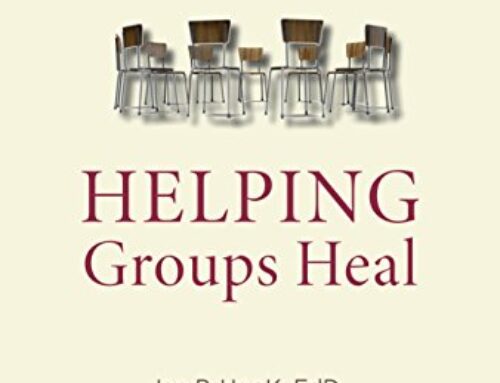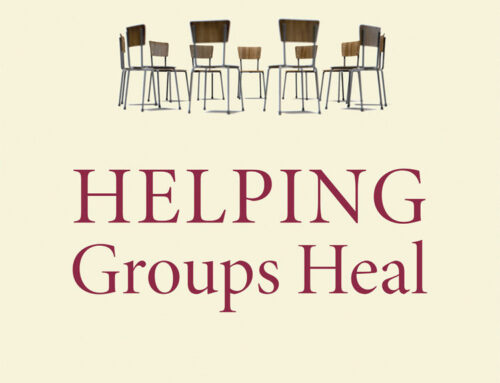Who Is Outside Your Group?
November 17, 2017
Categories: Groups
As human beings, we have an uncanny tendency to mark out who is inside our group, and who is outside our group. Psychologist Jonathan Haidt describes human beings as “group-ish.” In ancient times, it was important for survival to have a close group of people who worked together to gather food, protect children, and fight off enemies. Because it was adaptive, the tendency to form close-knit communities became a part of who were are as humans.
Fast forward to the present day. I think most of us would agree that it is still important for us to have a place to belong. I remember being aware of this one day when I had to ask a friend for a ride to the mechanic. “Whew,” I thought to myself. “I’m glad I have a group of people I can call!”
The Dark Side to Groups
Although groups are integral to how we organize our lives, there is also a dark side to our tendency to form clearly defined groups. As much as we love people who are inside our group, we tend to derogate and ostracize people who are outside our group.
Most of the biggest conflicts in our world today involve groups of people who don’t like each other.
Jesus and Groups
I was reading a story the other day about Jesus, where he addresses our tendency to look down on people who are outside our group. John (a follower of Jesus) was telling Jesus how he saw someone driving out demons. Seems like a good thing, right? Wrong, at least according to John. This person wasn’t in their particular group.
I think John’s objection sounds a lot like our world today. “We saw someone driving out demons in your name and we told him to stop, because he was not one of us.” (Mark 9: 38)
I love the response of Jesus. He doesn’t support the rigid distinctions John makes between groups; in fact, he does the exact opposite. Jesus says, “Do not stop him. For no one who does a miracle in my name can in the next moment say anything bad about me, for whoever is not against us is for us. Truly I tell you, anyone who gives you a cup of water in my name because you belong to the Messiah will certainly not lose their reward.” (Mark 9: 39-41)
Balancing the Good and Bad
I think our tendency to form close-knit groups based on aspects of our identity such as religion has both benefits and drawbacks. On the positive side, shared identities and convictions help bind communities together. On the negative side, having a group of similar people who believe the same thing can blind communities to certain things, such as injustice that doesn’t affect members of the group, or prejudice and discrimination toward those who believe differently.
In other words, groups bind and blind.
Balance is important. Appreciate the groups you are a part of. But also be aware of the tendency for our groups to sharply delineate who is “in” and who is “out.” It’s easy to look down on others whom we consider “not one of us.”
Discussion: What do you think about our tendency to form groups based on our identities or beliefs? What are the positives and negatives to forming groups in this way? Is it possible to reap the benefits of our groups without ostracizing those who are different from us?

Related Thoughts
No Comments
Leave A Comment

Subscribe To My Newsletter
Join my mailing list to receive the latest blog posts.
Receive my e-book “The Mental Health Toolkit” for free when you subscribe.




Josh:
Great points here! Obviously group identification is important to the existence of life, yet in-group/out-group functioning can be quite tricky. I believe that it is important for leaders in both formal and informal groups to be very intentional in two primary areas: 1) Be careful not to get bogged down in using us v. them language. When we provide a standard of care and inclusiveness we are much better at inviting rather than dividing. 2) Recognize that challenge often turns groups thinking into a “bunker” mentality that leads toward aggressive responses to others that are outside the bunker.
If we are careful and intentional about those two areas we are much more likely to find peace in our group functioning!
Great thoughts Todd!
I especially like your point about how challenge and adversity tend to exacerbate negative responses toward out-group members. It’s tough because these are probably the situations where it is most important to act gracefully toward those outside of our group. But it’s difficult!
FYI, Todd is an expert on teamwork and leadership. Check out his work at teamworkdoc.com or follow him on Twitter @teamworkdoc
[…] from Jesus. We live in a society in which we are often disengaged from those we consider “the other.” I felt this disengagement as I walked through downtown Dallas the other night. I tried to […]
[…] political, and ideological differences. When you are tempted to exclude someone because they aren’t part of your group, remember the table isn’t yours. When you think about splitting your community instead of working […]